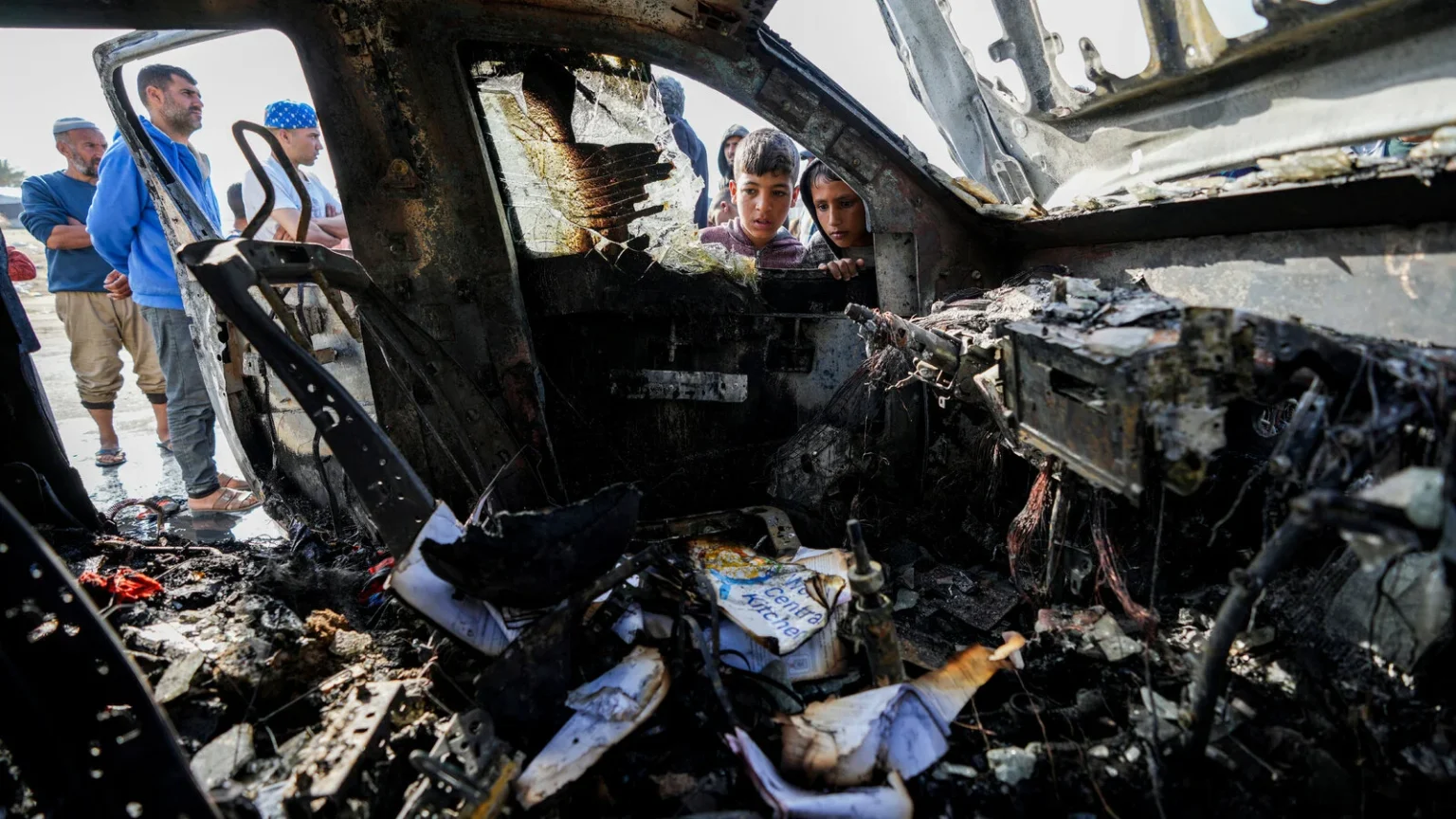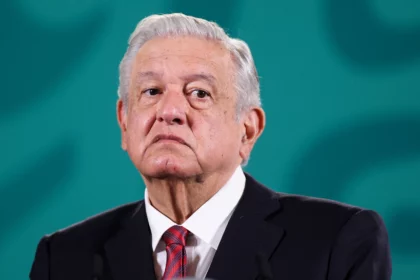Israel’s defense chief said on Wednesday that a strike that killed seven aid workers in Gaza was a “grave mistake” after the incident prompted a chorus of international condemnation.
“This incident was a grave mistake,” IDF chief Herzi Halevi said in a video message on the strike that hit a World Central Kitchen (WCK) convoy on Monday.
“It shouldn’t have happened,” Halevi said, as he blamed the strike on a “misidentification — at night during a war in very complex conditions”.
“We are sorry for the unintentional harm to the members of WCK.”
US-based food aid charity World Central Kitchen had said the strike hit their convoy as it was leaving a warehouse in the Gazan town of Deir al-Balah, killing seven people, including Australian, British, Palestinian, Polish and US-Canadian staff.
Since the October start of the war, the NGO has been involved in feeding displaced Gazans and was one of two organizations spearheading the delivery of food aid arriving by sea.
The employees killed on Monday had just unloaded “more than 100 tons of humanitarian food aid brought to Gaza on the maritime route,” WCK said.
The attack prompted strong international condemnation, with US President Joe Biden saying Israel “has not done enough to protect aid workers trying to deliver desperately needed help to civilians.”
UN Secretary-General Antonio Guterres called the strike “unconscionable”, and said it highlighted the need for an immediate ceasefire between Israel and Hamas.
Britain summoned the Israeli ambassador to London to hear its “unequivocal condemnation” of the strike, with three of those killed British nationals, and demanded “full accountability”.
Prime Minister Benjamin Netanyahu had earlier said that Israel’s military had “unintentionally” killed the aid workers, calling it a “tragic case” that would be investigated “right to the end”.
He did not, however, apologize for the deaths.
AFPTV footage showed the roof of a vehicle emblazoned with WCK’s logo had been punctured, alongside the mangled wreck of other vehicles.

The aid workers’ deaths come as relentless Israeli strikes continue to pound the territory, flattening critical infrastructure, all but collapsing the health system, and pushing more than half the population to the brink of famine.
Regional tensions have also surged after Israel was blamed for an air strike on the Iranian consulate in the Syrian capital Damascus on Monday that killed seven Revolutionary Guards, two of them generals.
Tehran, which backs Hamas and other groups fighting Israel and its allies across the region, has vowed revenge.
Netanyahu has promised to push on with the war to destroy Hamas despite nightly protests demanding he step down.
He has also faced pushback from a staunch ally the United States.
The White House said in a statement on Monday it had once again expressed concerns to Israel about a planned offensive in Gaza’s southern city of Rafah, which is overcrowded with 1.5 million people, most of them displaced by the war.
Israel pledged to “take these concerns into account”.
The bloodiest-ever Gaza war erupted with Hamas’s October 7 attack, which resulted in about 1,160 deaths in Israel, mostly civilians, according to an AFP tally of Israeli official figures.
Israel’s retaliatory campaign has killed at least 32,900 people, mostly women and children, according to the health ministry in Hamas-run Gaza.
Palestinian militants also seized around 250 hostages. Israel believes about 130 remain in Gaza, including 34 presumed dead.
The World Bank on Tuesday released an interim assessment that said the war had caused about $18.5 billion worth of damage to Gaza’s critical infrastructure.
That was equivalent to 97 percent of the combined economic output of the Gaza Strip and the occupied West Bank in 2022, it said.
Gaza has been under a blockade since the start of the war, with the United Nations accusing Israel of preventing humanitarian aid deliveries and warning of “catastrophic” hunger.
World Central Kitchen had been working to unload food brought to Gaza by sea from Cyprus.
Following the strike, it said it was suspending its operations in the region.
Cyprus said on Tuesday that the ship the Jennifer was returning to the Mediterranean island with around 240 tons of aid that had not been unloaded.
The Israeli military said it was “conducting a thorough review at the highest levels to understand the circumstances” of the strike that killed the aid workers.
British Prime Minister Rishi Sunak told Netanyahu that “he was appalled by the killing of aid workers”, a Downing Street spokesperson said in a statement.
Australian Prime Minister Anthony Albanese said he also spoke to Netanyahu by telephone, raising his “anger and concern” over the death of Australian national Lalzawmi “Zomi” Frankcom.
UN humanitarian chief Martin Griffiths expressed “outrage” over the deaths, describing the aid workers as “heroes killed while trying to feed starving people,” a statement said.
And Poland demanded compensation for the families of the killed aid workers, one of whom is Polish.
The families of Israeli hostages held in Gaza by Hamas blasted Netanyahu as a “traitor” as anger at his handling of the war spawned a fourth consecutive night of mass protests.
Thousands gathered in front of the country’s parliament, with hostage families and former prime minister Ehud Barak blaming Netanyahu for the October 7 “disaster” and demanding an election.
Einav Zangauker, whose son Matan is one of the 134 still held in Gaza by the Islamist militants, accused Netanyahu of failure and of trying to blacken the reputation of the hostage families.
“You call us traitors when you are the traitor, a traitor to your people, to the State of Israel,” Zangauker said.
The Palestinians, meanwhile, revived their application to become a full member state in the United Nations.
In a letter to Guterres seen by AFP, Palestinian UN envoy Riyad Mansour requested “upon instructions of the Palestinian leadership” that an application dating back to 2011 be reconsidered this month by the Security Council.




